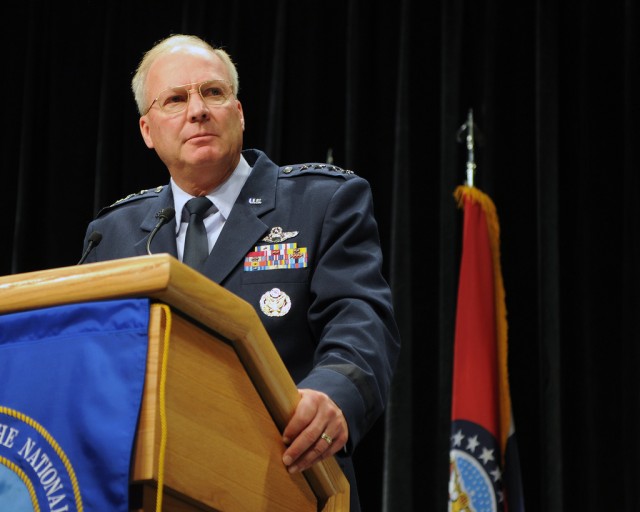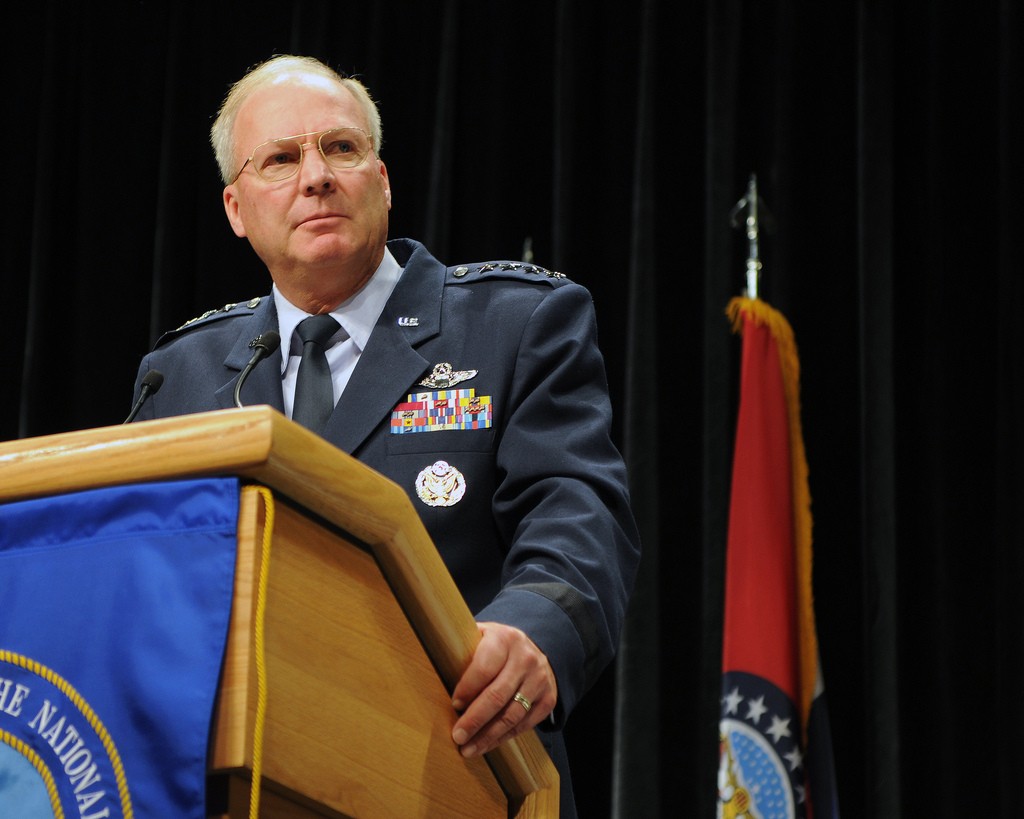
ST. LOUIS (Army News Service, Aug. 9, 2010) -- The National Guard likely will continue to play a significant role in overseas contingency operations for the foreseeable future, the chief of the National Guard Bureau told 1,800 Guard members Aug. 8.
"Just like we have in Kosovo for 14 years and the Sinai [and] the Horn of Africa, I think the National Guard will be asked to stay longer ... and give [our] civilian-acquired skills to ... emerging government," Air Force Gen. Craig McKinley said at the 39th annual conference of the Enlisted Association of the National Guard of the United States.
The Guard already is making a significant military-to-civilian contribution through the agribusiness development teams on the ground in Afghanistan - a program born in Missouri.
"The things that we bring from our civilian occupations will mean that the National Guard will be in huge demand for years to come," McKinley said.
McKinley said that during a July visit to Iraq and Afghanistan, he was struck by the contrast between the two countries.
"What I ... felt in Iraq ... is the Iraqis are [on] the verge of taking control of their own destiny and their own country by forming a government and moving out," he said.
Recalling his car trip from the embassy to the Baghdad airport, he noted that something had changed from previous visits - security along a route once infamous for violence was provided entirely by the Iraqi military.
"It gave me a sense of hope that ... this country has the potential to turn a corner and to make a stand on its own and to determine its own destination," he said.
In Afghanistan, McKinley found a hot war - and a surge in which the Army National Guard is playing a key role. He said he was anticipating some "pretty rough days and months ahead."
"We're going to be at this for a very, very long time," McKinley told the attendees who make up an association of more than 85,000 members, which promotes the status, welfare and professionalism of the enlisted personnel of the Army and Air National Guard.
All Guard members - from McKinley to the newest enlistee - stand on the shoulders of our predecessors and mentors, the 26th chief of the National Guard Bureau said, adding that the time he spends with enlisted Soldiers and Airmen is inspiring.
"For anyone who doubts that this nation is committed to remaining strong and being the beacon of hope for the rest of the world, all you have to do is look in the faces of these young men and women," he said.
The National Guard is at a historic peak of excellence, he said.
"With the leadership of the adjutants general - working for the governors - we have the finest, most talented, most capable, most resilient, most battle-tested National Guard, arguably, in the history of the United States of America," the chief said, "one of the finest, most well-trained, most well-led, most inspired forces that we could ask for."
"Much of the reason this nation is so strongly behind its armed forces and what it is doing is because we've called out the Guard, McKinley said. "We've involved all of our 3,300 communities around our states and territories and the District, and citizens understand what's at stake."
Recognition of servicemembers' sacrifices - regardless of politics - is in stark contrast to the Vietnam era, McKinley said, and the implementation of the total force concept is one reason why.
"It's a different Guard," he said. "The National Guard had a different role. "'One weekend a month, two weekends in the summer,' - how distant and remote those phrases are, but, for many of us, that was our National Guard.
"We had underutilized equipment, equipment that was old, not serviceable. We weren't able to give to the Soldiers and Airmen the kinds of training that made them full-up. But today... our voices are heard not only in the Pentagon but in the White House, and that's a significant achievement that we can all be very, very proud of."
(Staff Sgt. Jim Greenhill serves with the National Guard Bureau)

Social Sharing